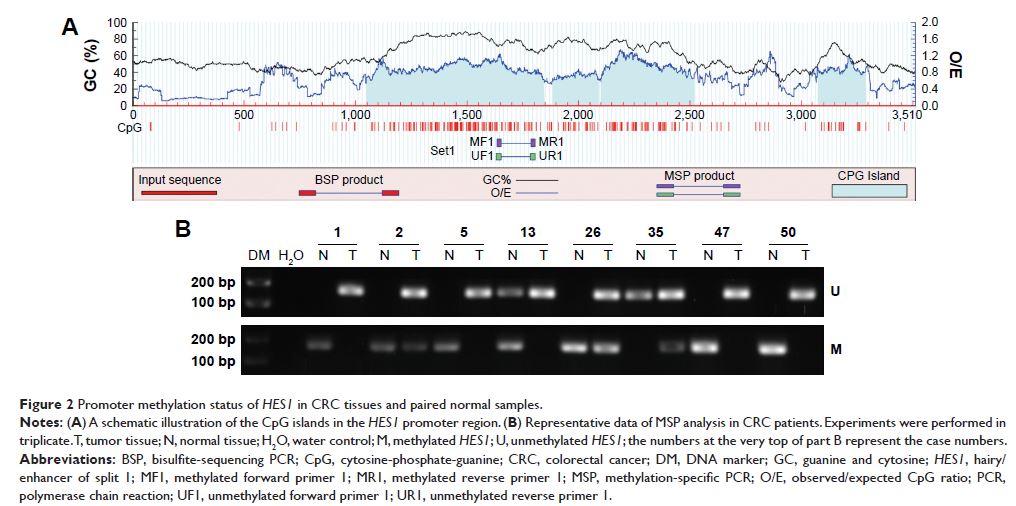108985
论文已发表
注册即可获取德孚的最新动态
IF 收录期刊
- 3.4 Breast Cancer (Dove Med Press)
- 3.2 Clin Epidemiol
- 2.6 Cancer Manag Res
- 2.9 Infect Drug Resist
- 3.7 Clin Interv Aging
- 5.1 Drug Des Dev Ther
- 3.1 Int J Chronic Obstr
- 6.6 Int J Nanomed
- 2.6 Int J Women's Health
- 2.9 Neuropsych Dis Treat
- 2.8 OncoTargets Ther
- 2.0 Patient Prefer Adher
- 2.2 Ther Clin Risk Manag
- 2.5 J Pain Res
- 3.0 Diabet Metab Synd Ob
- 3.2 Psychol Res Behav Ma
- 3.4 Nat Sci Sleep
- 1.8 Pharmgenomics Pers Med
- 2.0 Risk Manag Healthc Policy
- 4.1 J Inflamm Res
- 2.0 Int J Gen Med
- 3.4 J Hepatocell Carcinoma
- 3.0 J Asthma Allergy
- 2.2 Clin Cosmet Investig Dermatol
- 2.4 J Multidiscip Healthc

HES1 启动子低甲基化对结直肠癌患者的临床病理意义
Authors Wu Y, Gong L, Xu J, Mou Y, Xu X, Qian Z
Received 16 September 2017
Accepted for publication 6 November 2017
Published 8 December 2017 Volume 2017:10 Pages 5827—5834
DOI https://doi.org/10.2147/OTT.S151857
Checked for plagiarism Yes
Review by Single-blind
Peer reviewers approved by Dr Akshita Wason
Peer reviewer comments 2
Editor who approved publication: Prof. Dr. Geoffrey Pietersz
Abstract: Hairy/enhancer of split
1 (HES1) is a basic helix–loop–helix transcriptional repressor. Aberrant
demethylation has been considered a common mechanism of tumor promoter gene
activation. In the current study, we aimed to investigate the methylation
status of the HES1 promoter
and correlations with clinicopathological parameters and prognosis in
colorectal cancer (CRC). The expression of HES1 in 50 paired CRC specimens and
adjacent normal tissues was determined by using quantitative real-time
polymerase chain reaction and immunohistochemical analysis. Moreover, DNA
methylation status was evaluated through methylation-specific polymerase chain
reaction and bisulfite sequencing. The correlation of methylation status with
HES1 expression level and clinicopathological parameters was statistically
analyzed in CRC patients. Our data showed that the methylation level of HES1 was significantly
decreased and negatively correlated with HES1 expression in CRC tissues.
Moreover, HES1 hypomethylation was
associated with a poor histological grade, Dukes’ classification, lymph node
metastasis, and clinical stages (P <0.05).
Furthermore, survival analyses revealed that a decreased methylation status
of HES1 was linked to poor
prognosis of CRC patients. In conclusion, promoter hypomethylation upregulates
HES1 expression and plays a critical role in the progression and prognosis of
CRC patients.
Keywords: colorectal
cancer, HES1 , hypomethylation, prognosis,
progression
